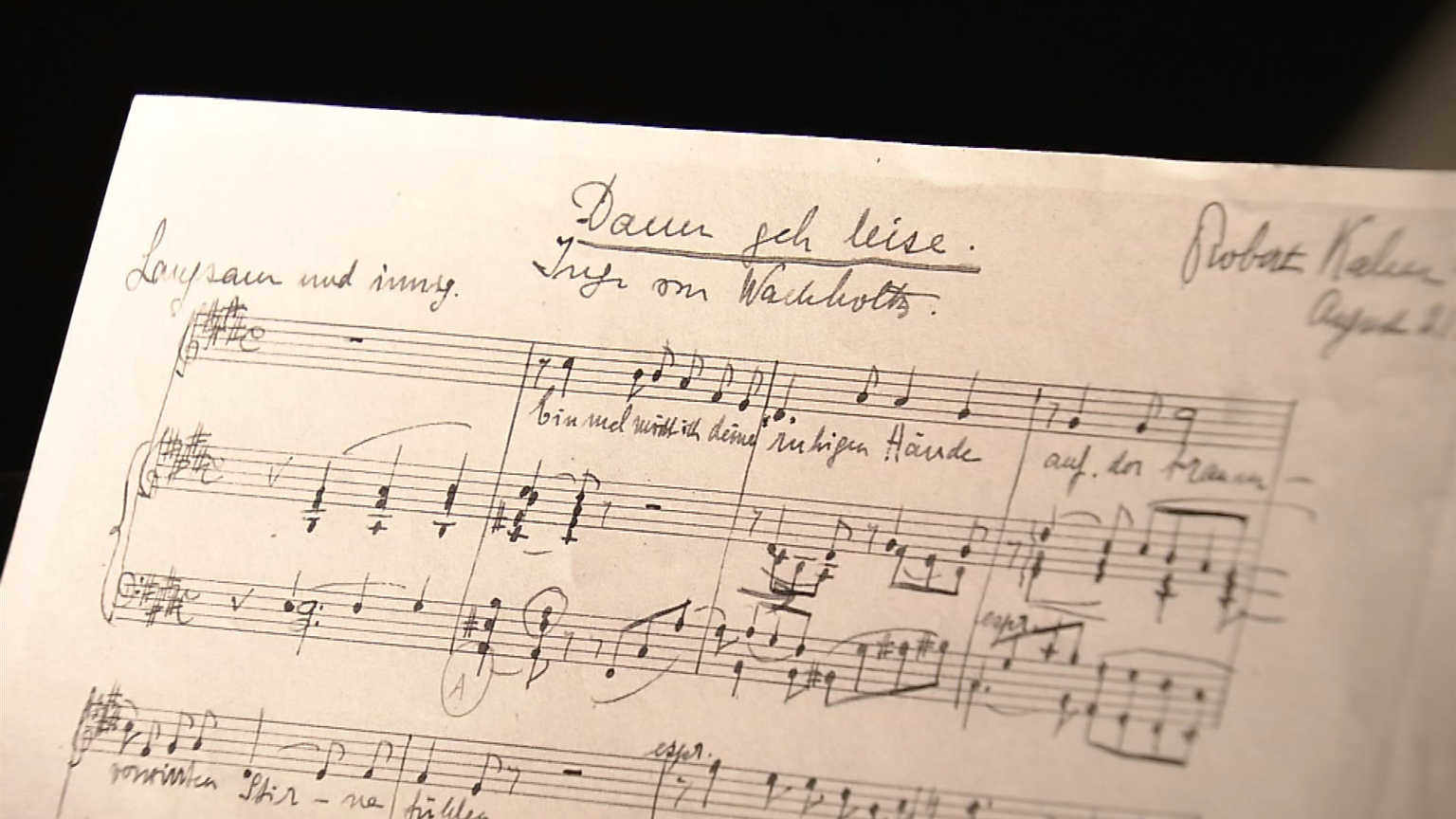(*This article includes a video featuring a performance of a lost piece of music.)
Reviving music lost to war
"When war breaks out, the first thing destroyed is culture," says German soprano Anna Gann. "We are trying to restore that."
Gann and Japanese pianist Naoko Christ-Kato have been working to revive some of that lost culture.
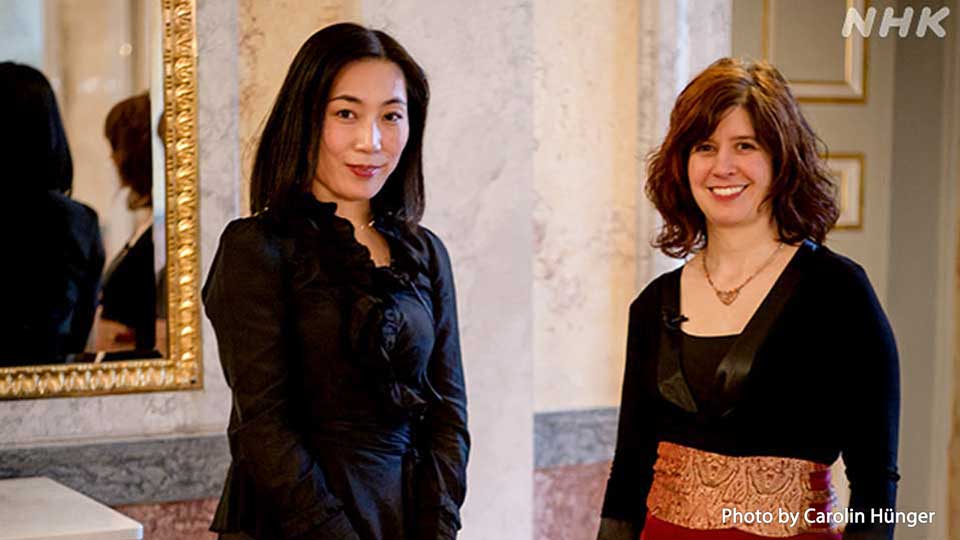
They live in neighboring towns in Germany and have been performing together since 2016. Their concerts do not feature the works of big names like Bach or Beethoven. Instead, the pair showcase music by mostly forgotten Jewish composers.
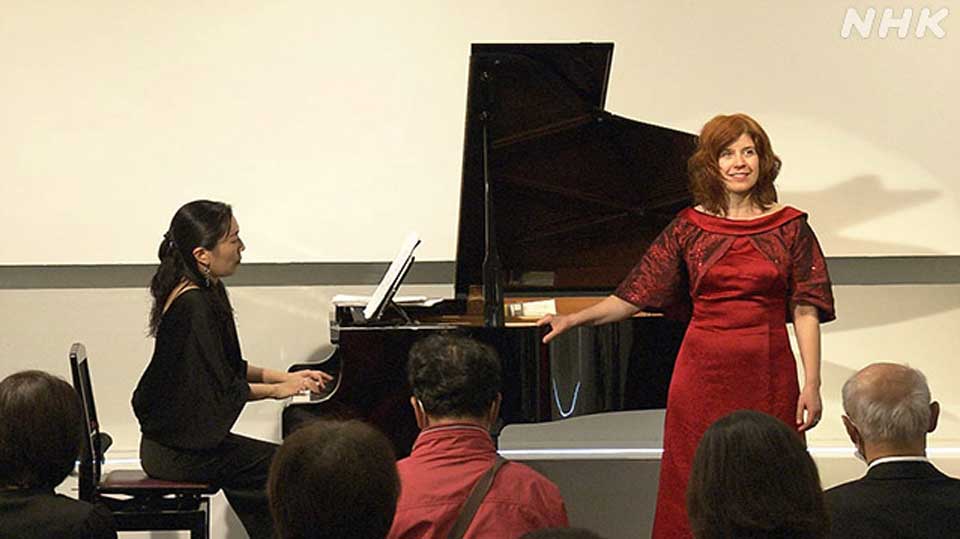
During World War II, the Nazis banned performances of works by Jewish composers, even holding burnings of their sheet music. Their music was lost to history and their names faded from public memory.
Christ-Kato estimates that upwards of 250 Jewish composers were essentially erased from history by the Nazi regime.
'My mission is to play that music'
One composer in particular inspired the duo's efforts.
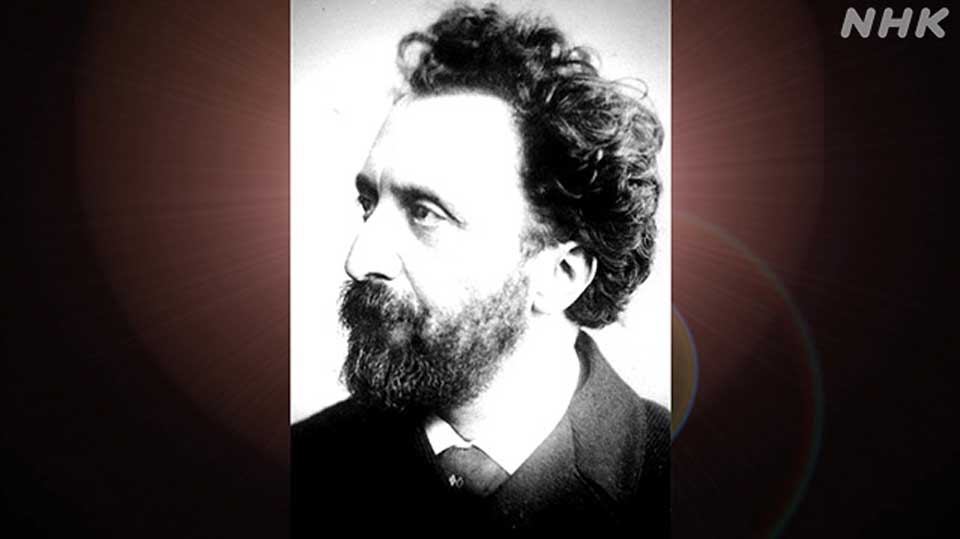
Friedrich Gernsheim (1839-1916) was a prolific composer and conductor, active until the early 20th century. He was well-known in prewar Germany, but performances of his music were banned when the Nazis took power. His work remained largely forgotten following the war.
Gann came upon his name by chance when researching Jewish composers for an event. A history book mentioned him in passing: "For example, like the composer Gernsheim..." She had never heard of him before, but was curious to learn more.
As she sifted through music encyclopedias and other specialist books, she could find no other mention of this elusive composer. It was as if he had been erased from history. She finally found a piece of handwritten sheet music in a storage center in Gernsheim's hometown of Worms.
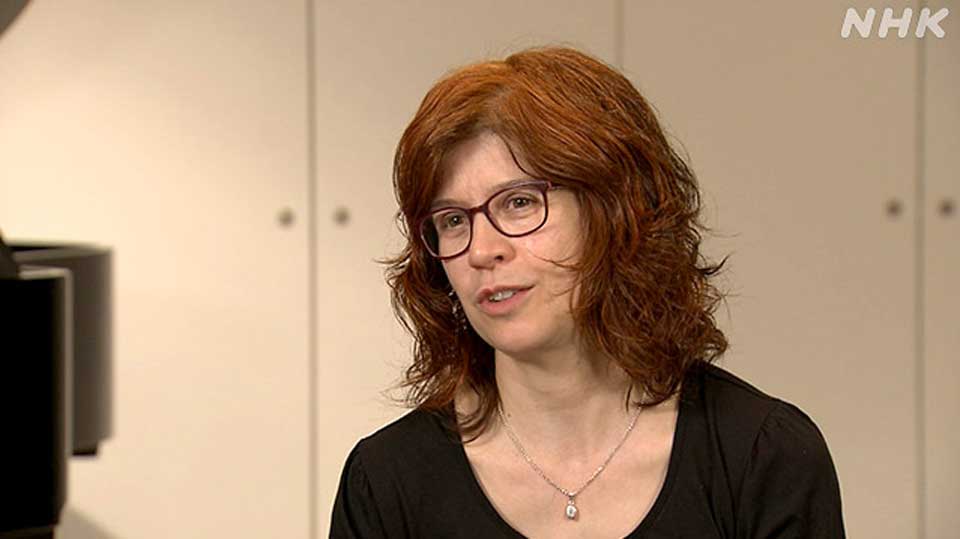
"You can find information about Brahms all over Germany, but there was nothing on Gernsheim," Gann says. "Even though he was involved in music for many years and was revered in Germany, he's completely unknown. You can't find or buy his sheet music."
Christ-Kato recalls when Gann showed her Gernsheim's music for the first time.
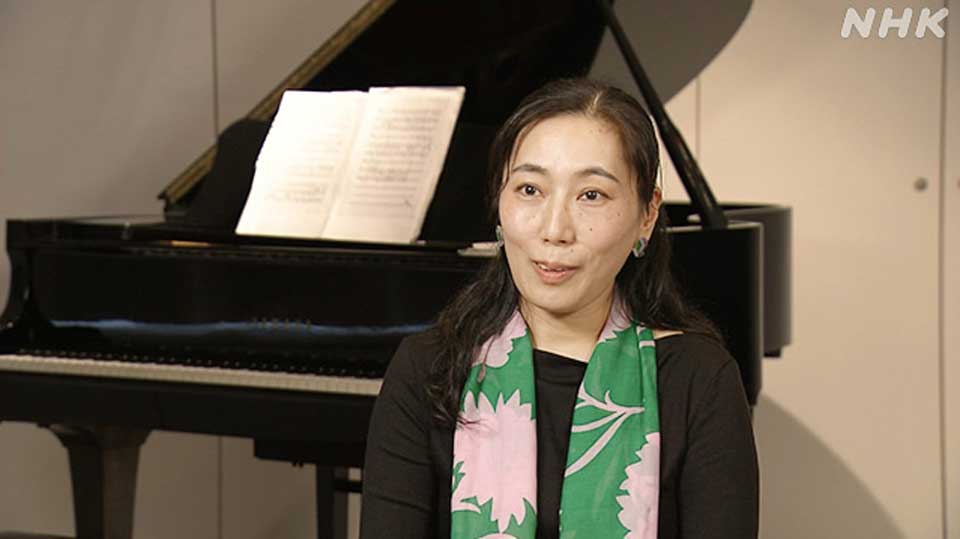
"The beauty of the music stole my heart," she says. "It gave me a strong impression of a hidden, vibrant jewel evolving before my eyes. It became my mission to play that music."
The pair started performing together under the name Gernsheim-Duo, while continuing to look for the composer's other works.
They started off locally, searching nearby shops specializing in old sheet music. They then expanded their efforts, contacting libraries and public archive centers around the world. If they located a piece outside of Germany, they had local acquaintances send it to them.
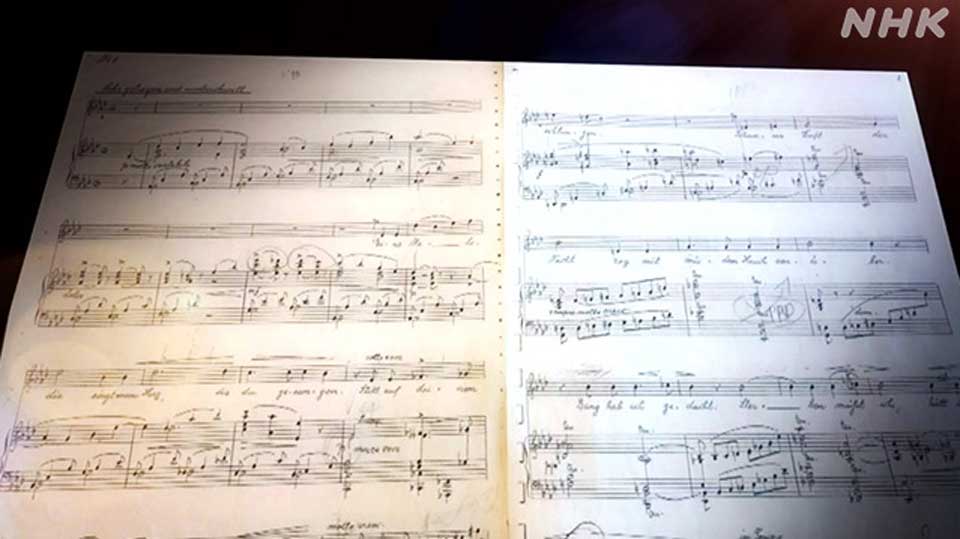
In 2019, after three years of working together, they released a recording of 22 of Gernsheim's works.
New challenge
One of the many people to support the duo's work was an official from an archive center in Berlin who sent them a copy of sheet music by another forgotten Jewish composer.
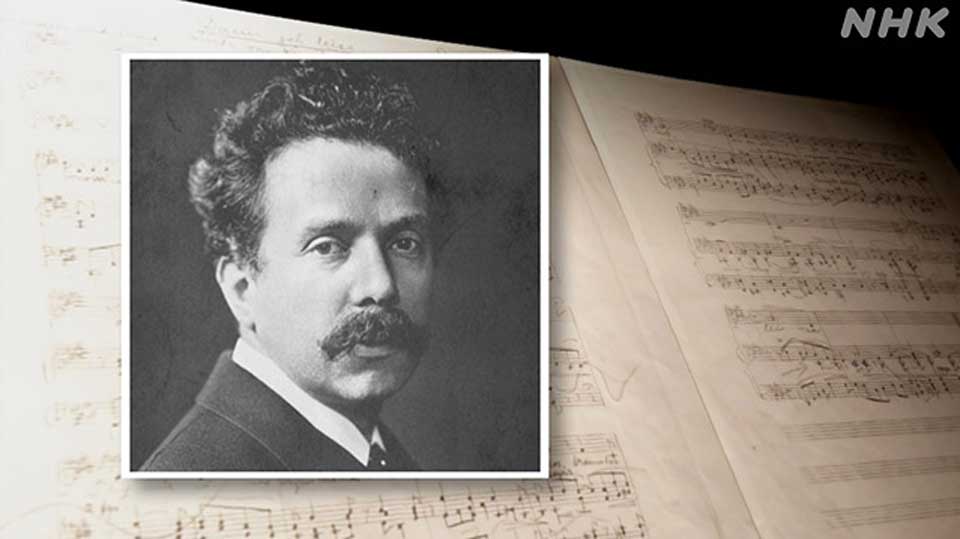
Robert Kahn (1865-1951) fled Germany to escape the Nazis. He lost his established status as a composer and his musical career was effectively over.
"The archivist learned of our activities and suggested we play Kahn's work too," says Gann. "If it weren't for this kind of connection, we probably wouldn't have been able to get our hands on the sheet music."
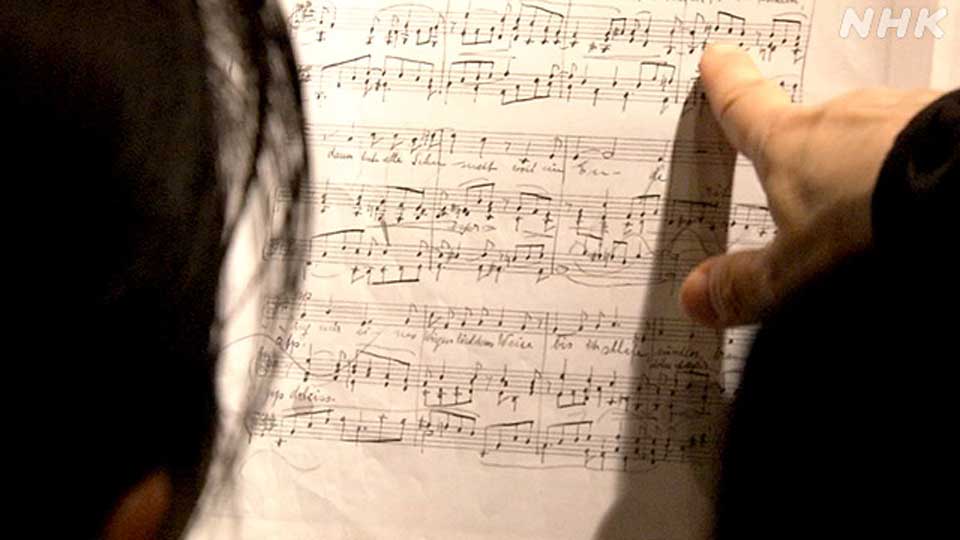
The sheets were handwritten by Kahn himself. Gann and Christ-Kato had trouble reading the lyrics in some parts. In other sections, they couldn't decipher the musical notation. With no existing audio sources, it was up to them to interpret the timing and tempo.
"We do as much research as possible to learn what kind of life the composer led and the social conditions at the time," said Christ-Kato. "We try to imagine and express the composer's intentions."
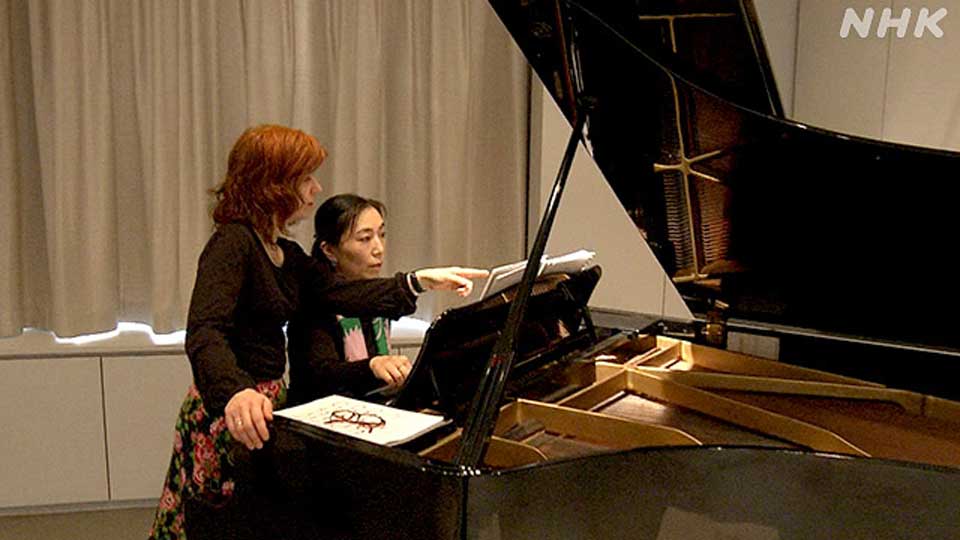
In October 2023, they performed Kahn's piece at a concert in Hiroshima.
(Song video *Click to play)
"Then, Go Quietly"
Someday, just once, on the forehead of wandered dreams,
I want to feel your gentle touch
If you could cool my fervor,
Surely all longings will subside
Until I slumber deeply without sound or dreams,
Sing a lullaby
Until I drift into a deep sleep as if I've never slept before,
And then, go quietly
(Full lyrics)
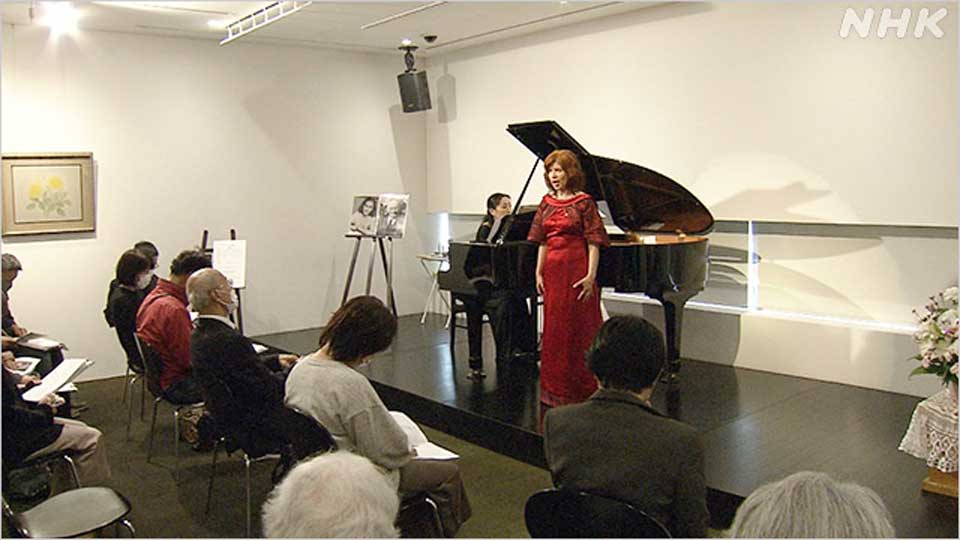
The performance left many in the audience moved.
"I thought it showed that everyone should listen to music peacefully, without having to think about anything," said one woman in her 20s.
"I'm very happy we were able to deliver this music," says Christ-Kato. "Since music can be expressed anywhere in the world, regardless of country, I want to reach many people with more music we have yet to discover."
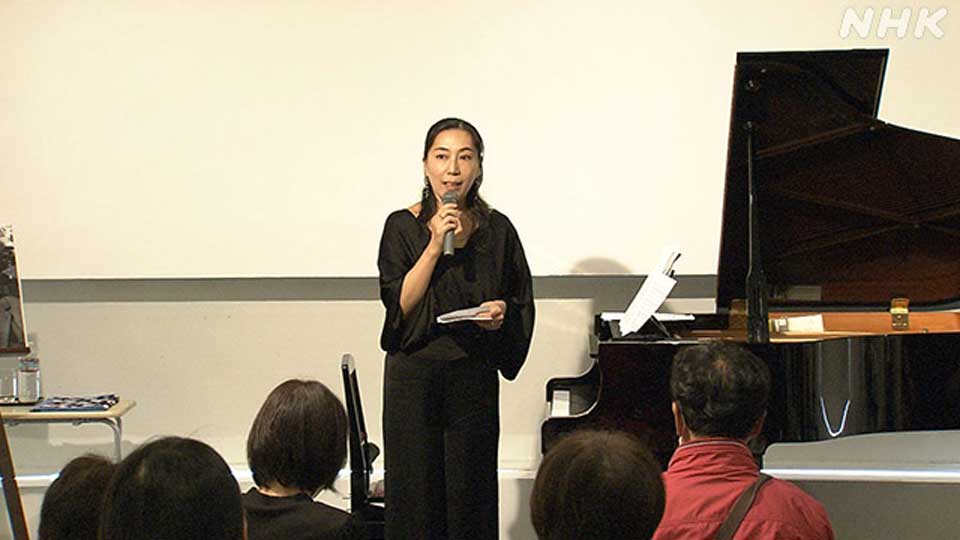
During the concert's intermission, Christ-Kato read a quote by Jewish composer Viktor Ullmann (1898-1944). A victim of the Holocaust, he wrote this about two days before he was executed in the gas chambers at Auschwitz:
"It must be emphasized that the concentration camp has served to enhance, not to impede, my musical activities and that our endeavor with respect to Arts was commensurate with our will to live."
Christ-Kato told the audience, "Rather than looking at Jewish composers with pity, I want people to feel from the music the positive strength they had, persevering no matter how inhumanely they were treated."
